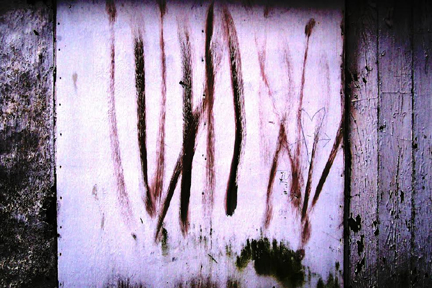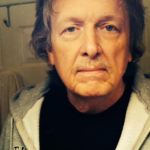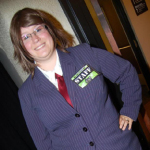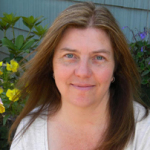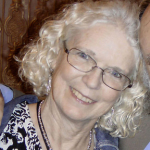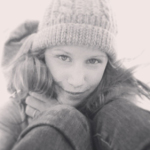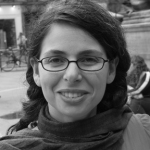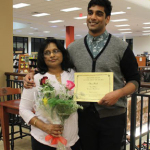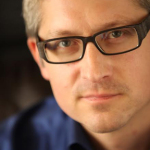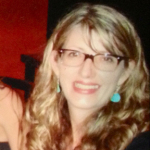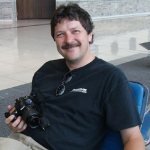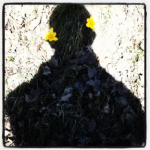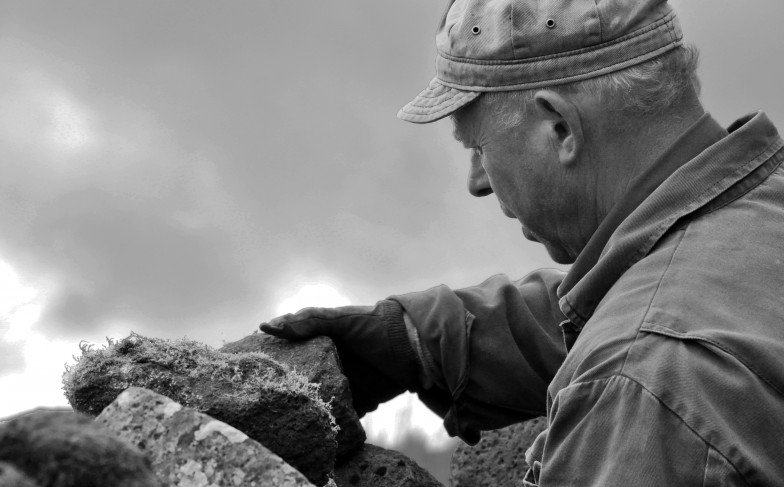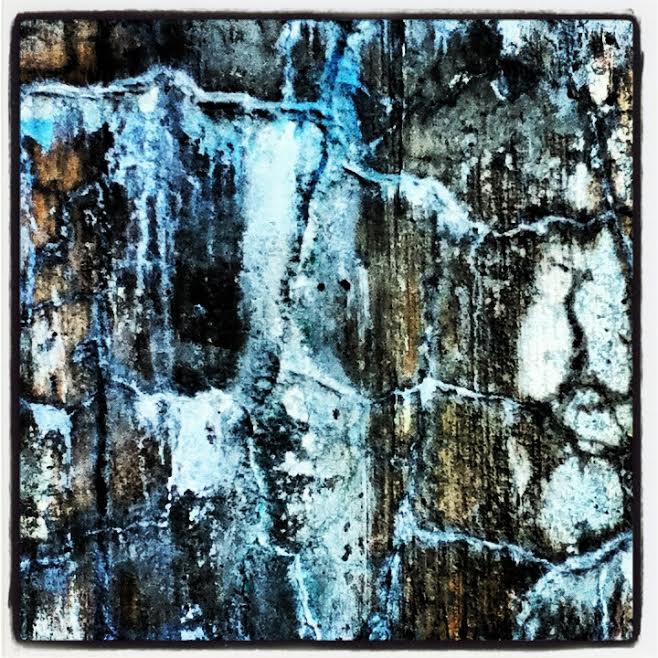
It was all happening too fast. My mother was dying, I’d just been diagnosed, and my husband, Curt, was standing in the living room saying, “You need to call your parents and tell them to cancel their visit.” He was right, of course, but it was all happening too fast and I wanted a minute to just think about it. Or avoid thinking about it, really.
Curt had jaw set and his chest puffed out the way he did when making non-negotiable pronouncements. Enormous and serious in his dark suit and tie he stood like a wall between my troubled past and a now frightening future. Focus on what’s most important, his bulk was telling me. He’d just flown across the country, cutting short his meetings in Sacramento, so he could be with me after the diagnosis had come back. Because it really was cancer, just like my mom’s.
“Your parents would be too much stress for you now,” he said.
“But my mom…” I started.
“Look, If it was just your mom I guess it’d be ok,” he cut me off. “But having your dad here is too much stress on you now. Hell, I’ll call them myself and tell them not to come if you want.”
“No I’ll do it,” I said. I felt a pit of dread and sadness now growing as surely as the lump in my breast. I’m not a bad person, the type who abandons her dying mother in her hour of need. I don’t want to be seen that way, and yet, things are so much more complicated than you can imagine.
My parents had already left their home in Denver and were staying with my younger sister, Aggie, up in Philadelphia. Their plan was to head to our home in Northern Virginia next. They were calling it a farewell trip because Mom didn’t know how much time she had left now that her cancer had metasticized. And that was her trick, banking on pity to get around my edict that she not bring Dad near my kids.
No she can’t come. Of course she can’t. But how on earth was I going to make that phone call?
I’d last seen Mom the past Thanksgiving at Aggie’s. Her hair white, thinned from the oral chemo drugs. Her shoulders were slumped and her bosom concave because she’d never gotten reconstruction after her initial mastectomy. But her starling-bright eyes were alert and lively and she toddled around common room of Aggie’s husband’s church greeting all the guests with a warm smile. A kooky little garden-gnome grandma, you might marvel if you saw her. How much harm could she be?
Yeah, but that’s the problem! (I might answer in this imaginary conversation) She looks like the perfect person to set down in front of the grandkids with a book of nursery rhymes. But you have no idea how dangerous that woman’s powers of denial can be. How she could watch my father savagely beat her children, then blithely explain away our bruises and strange behavior to any teachers or neighbors who would ask. She fell when she was hiking at the cabin. She was sliding down the banister—so careless! She likes to kick herself in the shins, can you believe it? I don’t know how we stop her.
“Oh, it’s best not to talk about family issues outside the family,” Mom would tell us with a conspiratorial smile. We’re all in this together, you girls and me, being the implication. Like Dad’s abuse was some kind of fun secret bond that we shared.
* * *
But I didn’t want to share anything with her. Not as a child, not now. I wanted to cut her off, but god love her, she always found a way to intrude back into my life. You have to come see me, I have cancer. You have to see me because the cancer’s come back. You have to see me because I’m dying…
Then one morning in the shower, possibly right as my parents were boarding their plane for their East coast visit, I felt a pea-sized lump in my left breast. That’s not insignificant. How could I not have noticed that before? I thought in a dizzy panic. I knew immediately it was cancer.
“Mom’s done this to me!” I thought, irrationally. “To force a connection between us at last!”
It was late May, and the summer semester had recently begun at the community college where I taught. My own children had left for school, and I had only about 20 minutes to get out of the house and make it to my class on time. I shook myself out of my daze and with trembling hands, I dried my hair, dressed, gathered the things I would need for the day’s lesson. Then I put in a rushed call to my doctor’s office.
A blur of medical visits followed, each scheduled for me with an unsettling tone of urgency: You’ll need to get a mammogram, a sonogram, a biopsy…right away.
There had been signs. The night sweats, low grade fevers, the fatigue. I brushed them off. I take good care of myself, I reasoned. Eat right, exercise. My body wouldn’t betray me! I’m sure nothing is wrong.
“Aren’t you supposed to get regular mammograms?” Curt once asked. “You know, because of your mom’s cancer history?”
“Yeah, I will,” I would answer, without actually planning to. “But Curt, you know, I don’t think I’m at risk. I’m nothing like my mom.”
* * *
The final stage in the diagnostic whirlwind after I’d found the lump was a sonogram-guided biopsy to be performed by a nervous, almost apologetic radiologist with startled round eyes and thinning black hair.
“I see your mother has had breast cancer,” he said, scanning over my medical file. The room was dim and chilly, something typical, I would learn, with these high-tech exams: they don’t want to overheat the machinery. On a wall opposite the exam table a gray image of my breast tissue glowed on a lighted display board. “How old was she when she was diagnosed?”
“56,” I answered. I used to take comfort in that number. It sounded so old. Postmenopausal, I’d told myself, when that phase of life had seemed eons away.
“Umhm. And how was it treated?”
“She had a radical double mastectomy… chemo therapy… and I don’t know, maybe radiation too.” I cringed, self-conscious about how little I actually knew of my mother’s disease, despite the fact that I’d been with her for her initial surgery.
“And is she still living?”
“Yeah, she’s, let’s see, 70 now. But she’s not doing well,” I said. “The cancer returned and it’s in her bones. And maybe her lungs too.”
The doctor’s face emerged over the manila folder he’d been holding. His round eyes serious and sad. “I’m so sorry,” he said.
I felt both irritated by and protective of this doctor’s feelings. At 43, I was relatively young for cancer, and now here I was with a mother also stricken by the disease. The tragedy of genetics! There is only so much you can control.
* * *
In October, 1993, I was 28 years old, and had only recently returned to work from a three-month maternity leave following my second daughter’s birth. One day, out of the blue, my mother called me at the office.
“It would be nice if you could come out and see me for a few days,” she’d said. Her tone was even and pleasant, betraying no signs of distress.
“No Mom, I really can’t. I’ve only been back at work for a month. I don’t have any leave left.” I was trying to keep my voice hushed, to keep this intimate family phone call within the confines of my gray cubicle walls. There was nothing she could say that could get me to go out to family craziness in Denver, of that I was certain.
“Well, I’d really like you to. I could use some support.”
“Support? What for?” Here we go again, I was thinking. Some issue with Dad.
“I have breast cancer.”
“Oh God.”
“I’m scheduled for surgery this Thursday.”
“Thursday? Mom that’s in less than a week! Why didn’t you tell me about this earlier?”
I felt trapped. Mom springing this news on me at the last minute so I didn’t have time to react, calling me at work so I couldn’t raise my voice at her. Aggie was out of the country then, teaching English in Bogota, Colombia. Everything seemed calculated to leave me with no way to refuse my mother.
“This is bullshit, “ said Curt. “You shouldn’t go.”
“How can I not go? My mom has cancer.”
“Don’t take the kids, then.”
But he was working such long hours as a Senate staffer on Capitol Hill and I was still nursing.
In the end, I agreed to fly out Denver with my little daughters.
I wonder to this day what is it about my mother that made me so weak?
The cancer had been fairly advanced by the time Mom felt the lump in her breast. It had already spread beyond the breast tissue into her lymph nodes. She was scheduled for a radical double mastectomy, a disfiguring procedure in which the breast tissue, as well as the muscles beneath the breasts are removed. I now know the procedure is rarely performed unless the cancer has spread into the muscles, but at the time, my mother downplayed the seriousness of her situation. In fact, as I sat with her in the pre-op waiting area, she seemed giddy with all the attention being paid to her. Dad was mopey and sullen, slumped in a corner as if he’d sprung a small leak and was slowly deflating into his chair. But Mom was all smiles, like a queen for the day, chatting with the nurses from her hospital gurney, introducing them to four-month-old Rachael, who’d been allowed to accompany us.
Once the surgery was over, I retrieved two-year-old Isabel from the home of an old high school friend who’d been watching her, then returned to my parents’ house, where my father was waiting.
That evening, we ate a tense dinner, with Rachael asleep in her infant car seat on the floor and Isabel in the old wooden high chair we’d brought up from the basement.
The dining room was familiar with its odd clutter of things, from the brushed metal Scandinavian-style display shelves, the framed Japanese ink drawings, the old wrought iron chandelier. My father was sad and quiet, yet the anxiety of being so near him knotted my stomach so I could barely eat a mouthful. Picking up on the tension, Isabel squirmed and pushed her plate perilously close to the edge of the high chair tray. I sprung for it in a panic over what would happen should her dinner spill onto the floor.
“I wanna go,” she pouted.
“Ok,” I said. “Time for bed?”
“I don’t mind cleaning up,” Dad said, not looking up, his jowly face sagging, his voice deep with despair.
“Thanks Dad, guess I’ve got to get these girls to bed.” It was only eight o’clock, but I felt exhausted myself from all the emotion of the day.
I lifted Isabel out of the high chair, then gathered sleeping Rachael up in my arms.
We went through the dining room and living room toward the stairs. Then Isabel noticed Calypso, my parent’s Standard poodle, curled up on the rug in the front hall.
“Doggie!” Isabel exclaimed.
“Yes, that’s our old doggie,” Dad said. He had shuffled out from the dining room behind us.
“Doggie! Doggie!” she said again, and clapped her little hands. Calypso opened her eyes and lifted her head slightly.
“Hi doggie!” Isabel reached forward and Calypso—startled–growled and snapped her teeth. Isabel shrieked and I grabbed her arm, pulling her toward me, at the same time I felt the presence of Dad close behind. He lunged forward and landed a swift kick into Calypso’s side. She yelped in pain.
“That’s no way to behave!” he bellowed.
“Dad!” I shouted. Isabel clutched onto my leg.
Calypso got to her feet, trembling and cowering and backing toward the wall. Dad kicked her again, and I saw that look come over his face, that look that said the rage had taken over and there was no turning back. He bent over and pummeled the dog furiously with both fists, making grunting sounds as each blow landed, while the dog barked out high-pitched, human-like cries. Isabel was screaming and screaming and pressing herself into the back of my knees. Shifting Rachael to one arm, I managed to pry Isabel loose with the other, then, clutching her hand, I hustled her toward the stairs.
“Stop it Dad! Stop it! You monster!” I cried, the anger ripping at my throat, “You’re a goddamned monster! You’ll never change!”
I ran into my old bedroom, and slammed the door behind me. Mom had set up the room for our stay, with a portable crib lined with pastel bumpers and a little wind up polar bear that played Brahms Lullaby. My heart raced and my limbs quaked with adrenaline and fear and memory. How often had it been me on the receiving end of that rage the way poor Calypso had been tonight?
Why did you agree to come here? I scolded myself. I knew something like this would happen, that Dad would not be able to contain himself. It was so stupid of me to put myself in this situation! Now what was I going to do? I thought about calling my friend who’d watched Isabel earlier in the day to see if we could spend the night with her, but there was no phone in the room, and I was afraid to go back downstairs. I silently cursed my mother for manipulating me into this ordeal.
All night I sat on the bed in a state of alert with my back against the wall and a
sleeping daughter on either side. Around five o’clock the next morning, I gathered up our things and prepared to head out. With just the glow of a tiny night-light plugged into the socket by the door, I packed my bag and the diaper bag, zipped the girls coats over their pajamas and crept down the stairs. I dialed a taxi from the kitchen phone, then went out into the still black night to wait.
We got to the airport ten hours before our scheduled flight home, but the funny thing was, the girls acted like angels, as relaxed and relieved as I was to be out of my parents’ house.
The night after my biopsy results came back, I tossed and turned in bed. I held my breasts, soft and warm in my hands, and wondered what their fates would be.
My mind was unsettled, unable to land on a comforting image. When sleep finally found me, I dreamed of hospitals, of white halls, labyrinthine and impersonal. I dreamed myself a prisoner unable to reach Curt and the children.
My mother was there in the dream. I couldn’t see her but I felt her presence looming near like a scepter in her hospital gown, her thick googly-eye glasses and her Eleanor Roosevelt smile. Isn’t this fun? We’re in here together, she was saying.
I woke up drenched in sweat.
“You had a fitful sleep,” Curt said. He had his legs over the side of the bed, feet on the floor, his white undershirt was pulled taut across his broad back and he rubbed his hands over his dark hair, across his bearded face. My great bear of a husband, rousting himself for the day. I wanted to crawl up inside him, to wear him like a protective cloak.
“I know. I’m stressed.” I hadn’t stirred from my sleep position, lying on my back, my arms folded across my chest under the covers. I stared up at the blades of the ceiling fan whirring above our bed. Should they be turning that fast? Everything seemed to be spinning out of control.
“Did you call your mom yet?” he asked. “I’m sure once you do that you’re going to feel a whole lot better.”
“I’m going to,” I said.
* * *
Still in my pajamas, I padded my way into the kitchen and dialed Mom’s cell phone. She answered in the way she always did, as if she’d been suddenly startled awake. “Oh! uh, Hello?”
“Hey Mom, it’s Emily.”
“Oh, Emily! How are you?”
“Not good Mom. Look, I’m sorry, but you and Dad aren’t going to be able to visit this weekend.”
There was a pause. “Why? Is something the matter?”
“I’m sick.”
“Well, you know Dad and I are staying in a hotel. We won’t be any trouble.”
“No, I mean I’m really sick. I have breast cancer.”
There was a brief, stunned silence, then, in a lowered voice “How do you know?”
“I found a lump. I just had it biopsied. It’s cancer.”
“Oh, honey. Well, isn’t there something I can do?”
I sighed. Mom, always pretending—no, actually believing—that she could help me out with things.
“No, Mom. I just need to relax and be with Curt and the kids this weekend. I can’t entertain visitors. I’m sorry.”
She didn’t put up much protest. “Well, I…” she said, her voice trailing off, “I guess I feel somewhat responsible…”
God, why did she have to express regret right now? If she’d started arguing, I could have fended her off. Instead, her voice, so sad and resigned, nearly brought me to my knees. A deep, gut-level anguish overtook me. If ever there were a time I needed a mother’s embrace—or my mother needed a daughter to be partner and friend—it was now. And yet it could not happen. The weight of our personal history was just too much. We said goodbye and I stood in my empty kitchen mourning the loss of what I never had.
Emily Rich is the non-fiction editor of Little Patuxent Review. She writes mainly memoir and essay. Her work has been published in a number of small presses including Little Patuxent Review, Welter, River Poet’s Journal, Delmarva Review and the Pinch. Her story “On the Road to Human Rights Day” was a notable entrant in the 2014 edition of Best American Essays.
Read an interview with Emily here.
![]()


